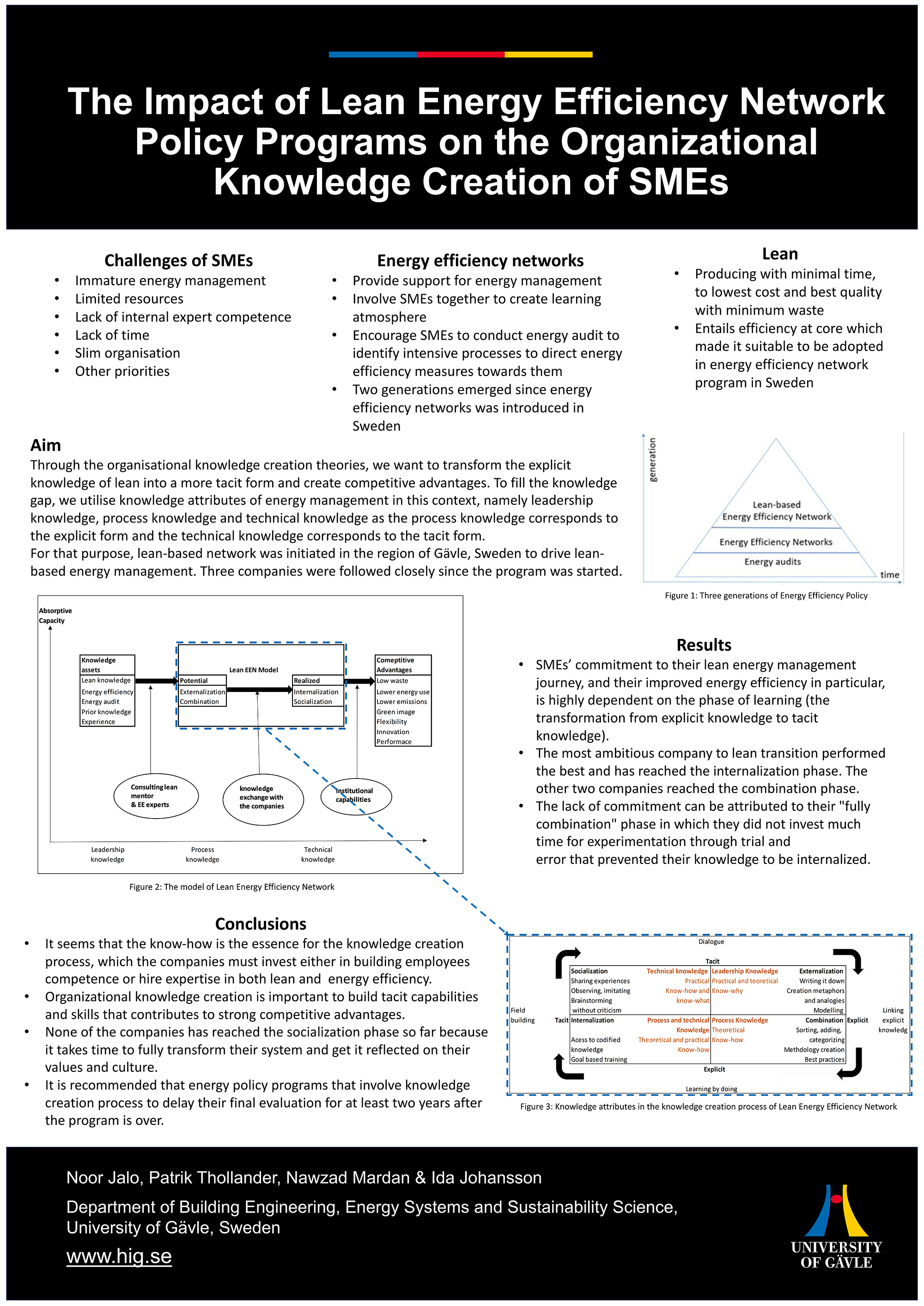The Impact of Lean Energy Efficiency Network Policy Programs on the Organizational Knowledge Creation of SMEs

Authors
Noor Jalo, Patrik Thollander, Nawzad Mardan & Ida Johansson
Department of Building Engineering, Energy Systems and Sustainability Science, University of Gävle, Sweden
Abstract
Due to climate change, the European Union has issued industrial emission and energy efficiency directives to lower the European Industry share of emissions. Energy policy is of great importance to promote energy efficiency in Small Medium-sized Enterprises (SMEs) around Sweden. SMEs shape the majority of the Swedish Industry in terms of number of companies. Energy efficiency network is a form of energy policy that has been directed to group SMEs together for networking purposes and support SMEs overcoming major barriers to energy management such as lack of time, non-energy related tasks higher prioritized, slim organization and lack of internal expert competence. Energy efficiency networks gather SMEs in the region of Gavleborg, Sweden, for conducting energy audits, and provide additional support. The network presented in this paper is more advanced since it has lean orientation in addition to the previous network functions. Such orientation allows deepened understanding of the processes through real time measuring and waste elimination. It has a great focus on the production processes in addition to the support processes and allows SMEs to look closely to “what they already have” and can be improved. It therefore leads to improving the tacit knowledge on energy efficiency that can be considered as a competitive advantage. Meaning, as SMEs improve the performance of their operations, they improve energy efficiency characterized by delays, overproduction, overprocessing, defects, unnecessary transport and motion and therefore reduce related cost and emissions. This paper sheds light on the importance of transforming lean knowledge offered by the network into tacit knowledge using the organizational knowledge creation theories, and absorptive capacity in addition to knowledge attributes in energy management. By doing so, such knowledge allows these SMEs to create solid competitive advantage and compete better in the market. For this purpose, a longitudinal multiple case study was conducted to discuss the different stages of their learning process e.g., socialization, externalization, combination, and internalization. The preliminary result shows that the SMEs commitment to their lean energy management journey and their improved energy efficiency in particular is highly dependent on the phase of learning (the transformation from explicit knowledge to tacit knowledge). Key finding is that evaluation of a program involving tacit knowledge development should be delayed until after policy programs evaluation allowing to more extensively find what and how more tacit knowledge was gained. This paper recommends future energy policies to take the organizational knowledge creation into account.
